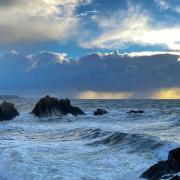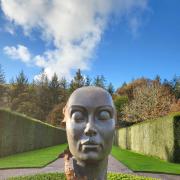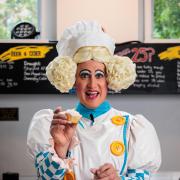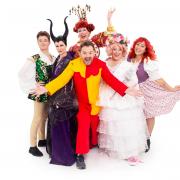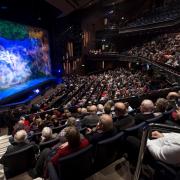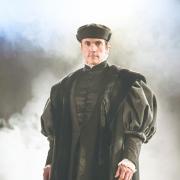Robbery, kidnapping and even treason - our county’s pirates have been making mischief on the high seas for hundreds of years
Ahoy, me hearties. It may have escaped your notice but 19 September is Talk Like a Pirate Day. Oh, arr, me maties, it is indeed.
Why, exactly, there should be a Talk Like a Pirate Day, I have no idea, but here in Devon we have a long tradition of piracy on the High Seas. I hope there’s nothing in the Devonian psyche that makes us predisposed to loot and pillage. I hope it’s more a love of the sea, an adventurous spirit and the desire to swashbuckle our way through life. I hope.
Whatever the reason, Devon has produced some of the most famous pirates who ever sailed the high seas. Of course, one man’s pirate is another man’s patriot. So whether you consider Francis Drake or Walter Raleigh as pirates depends on your point of view. Were they blackguards of the first order, murdering and stealing their way across the world, or were they serving queen and country to top up good Queen Bess’s coffers and so contribute to the common good of England? Ya pays yer doubloons and takes yer choice.
Henry “Long Ben” Avery, though, was most definitely the former. He was born in Newton Ferrers in the 17th century. He served on merchant ships and on a ship of war when England was fighting France. However, he soon tired of ducking cannonballs, led an on-board mutiny and became a pirate. Reports of his life then become a little hazy. It’s known he captured the Grand Moghul of India’s treasure ship Ganj-i-Sawai, making off with some 500,000 gold and silver pieces, numerous jewelled baubles, silver cups and trinkets. It’s believed he sailed to Madagascar and set himself up as a king with a fleet of ships and thousands of men. However, there is some evidence that he returned to Devon and died penniless.
In the north of the county there was William de Marisco, born in the 1200s, whose family owned Lundy Island. He and his relatives were notorious, attacking the Devonshire coast, plundering ships in the Bristol Channel, ransoming hostages and committing robberies. In 1242 he was involved in a plot to assassinate King Henry III. Big mistake. The king sent an army to capture William. He was convicted of treason and had the dubious distinction of being one of the first men in the country to be hung, drawn and quartered. His romantic sounding name of de Marisco is not quite so exotic when translated from the Portuguese. It means “shellfish”. William de Shellfish doesn’t have quite the same ring to it.
Pirate John Nutt was born in Lympstone, travelling to Newfoundland as a gunner on a Dartmouth ship around 1620. He organised a crew and took to piracy. He later offered his services to protect French and English settlements in Newfoundland, including the Colony of Avalon then under the leadership of George Calvert which, as it turned out, was a wise move. He was a pirate for three years before tiring of the life. He requested a royal pardon from Vice Admiral of Devon John Eliot who agreed in exchange for a £500 bond. Once back on the good old red earth of Devon he was arrested by Eliot and tried and convicted for piracy. Nutt was about to be hanged when George Calvert, by then Secretary of State, intervened on his behalf. He was freed and given £100 in compensation while poor old Eliot was charged with abusing his position and imprisoned.
Also from Lympstone was Captain John Phillips, a former cod fisherman. He too turned to piracy off Newfoundland, seizing more than 30 vessels. However, his career lasted barely a year. He lost a leg during a fight and then had his skull crushed in a mutiny. His head was cut off, hung from the bowsprit, before being sent to Boston in a pickle barrel.
Then there was Samuel Bellamy, born in Hittisleigh in the 1680s. He was known as Black Sam because he tied back his long black hair with a band of cloth. While his days as a pirate lasted barely more than one year, he and his crew captured more than 50 ships before his untimely death in a violent storm. Bellamy had the reputation of being merciful and generous, even gentlemanly. He consequently earned a second nickname – Prince of Pirates – and his crew called themselves Robin Hood’s Men.
Those are a few of the more notorious Devonshire pirates but there are many more. So as you bilge rats raise a glass of grog and dance the hornpipe to mark Talk Like A Pirate Day, remember that if you are Devonian you could well be descended from one.




